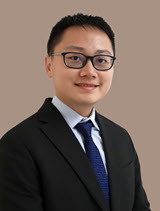Dr Yiu, Hei Hang Edmund 姚希衡
Dr Yiu, Hei Hang Edmund 姚希衡
- Health Economics
- Health preference (preference elicitation using Discrete Choice Experiment (DCE), time trade-off (TTO), and other health preference survey methodologies)
- Quality of life (population mental well-being)
- Patient-reported outcome measures
- Qualitative research (think-aloud interview, focus group interview)
- Economic evaluations (cost-effectiveness analysis)
- Survey validation
| Year | Awarding Institution | Qualification |
|---|---|---|
| 2016 | City University of Hong Kong | Bachelor |
| 2017 | University of Warwick | Master |
| 2022 | University of Warwick | Ph.D. |
Dr. Edmund Yiu is a Research Assistant Professor at the Department of Pharmacology and Pharmacy, The University of Hong Kong. He obtained his Bachelor of Business Administration (BBA) in Business Economics with First Class Honours from the Department of Economics and Finance at the College of Business, City University of Hong Kong, in 2016. Upon completion of his undergraduate degree, he pursued his master’s and doctoral studies at the University of Warwick in the United Kingdom. He obtained his Master of Science (MSc) in Economics with Distinction from the Department of Economics at the Faculty of Social Science in 2017. In 2018, he was awarded the prestigious Chancellor’s International Scholarship to pursue a PhD in Health Sciences (Health Economics) at Warwick Medical School, which he completed in 2022. Following his PhD, he joined Prof. Esther Chan’s team at the Department of Pharmacology and Pharmacy at the University of Hong Kong as a Postdoctoral Fellow in September 2022 and completed his postdoctoral training in January 2024.
Edmund is passionate about Health Economics research, particularly in the area of mental well-being preference elicitation. During his PhD, under the mentorship of his supervisors at the University of Oxford and the University of Warwick, he used discrete choice experiment (DCE) and composite time trade-off (C-TTO) methods to model the first UK preference-based value set for the Short Warwick-Edinburgh Mental Well-being Scale (SWEMWBS). This value set enables the estimation of Mental Well-being Adjusted Life Years (MWALYs), offering an alternative outcome measure to the Quality Adjusted Life Years (QALYs) in cost effectiveness analysis of interventions aimed at improving mental well-being. The adoption of MWALYs in economic evaluations helps overcome the limitations of using existing preference-based instruments that are primarily focused on physical health, such as the EQ-5D, for estimating QALYs. His work was selected for presentation at academic conferences, including the International Health Economics Association (iHEA) World Congress and the Health Economists’ Study Group. Furthermore, Edmund was actively engaged in teaching Health Economics modules in the UK, imparting knowledge on health preference research and healthcare efficiency to undergraduate and postgraduate students.
Edmund is currently using health preference survey methodologies (e.g. DCE and C-TTO) and a mixed methods approach to derive public preference weights in Hong Kong. These efforts aim to quantify the public’s perceived relative importance of mental well-being attributes to inform the design of interventions that most improve population mental well-being. He is also involved in various medication preference studies to understand barriers to medication adherence and the factors considered by patients in their choice of medication. Additionally, he is involved in a community pharmacy clinical trial project to validate pharmacy service questionnaires and investigate the cost-effectiveness of Minor Ailment service and Medication Management Services.
Are You Missing Publications, Invited Lectures? Click Me.


